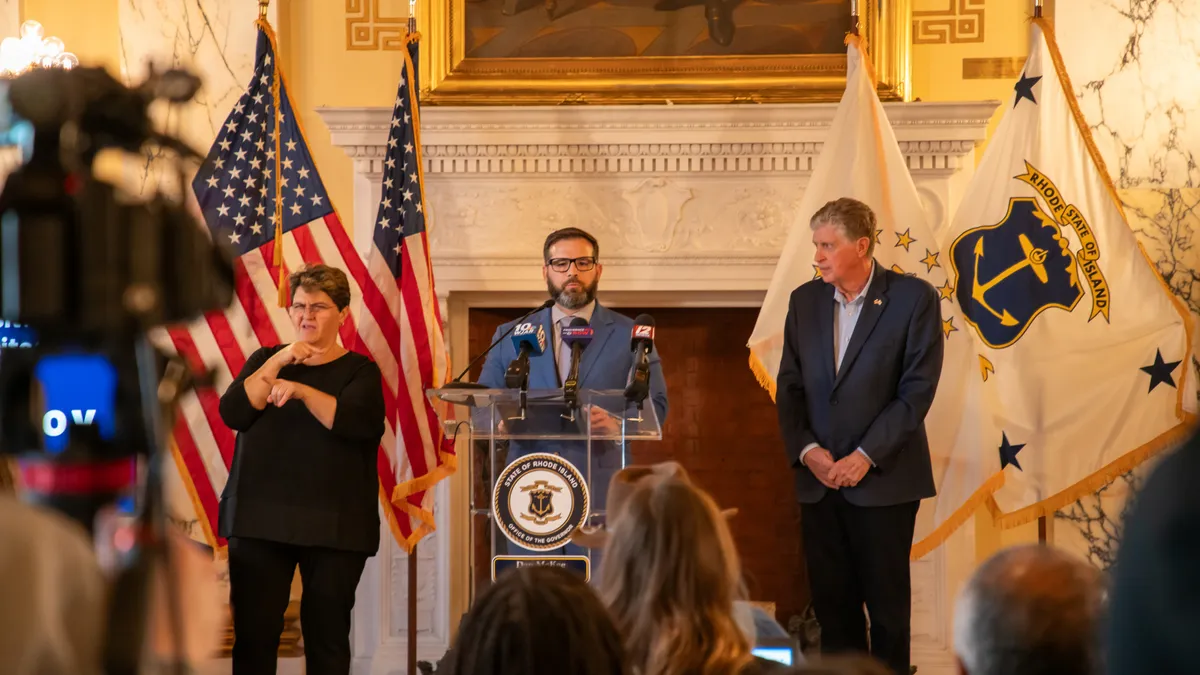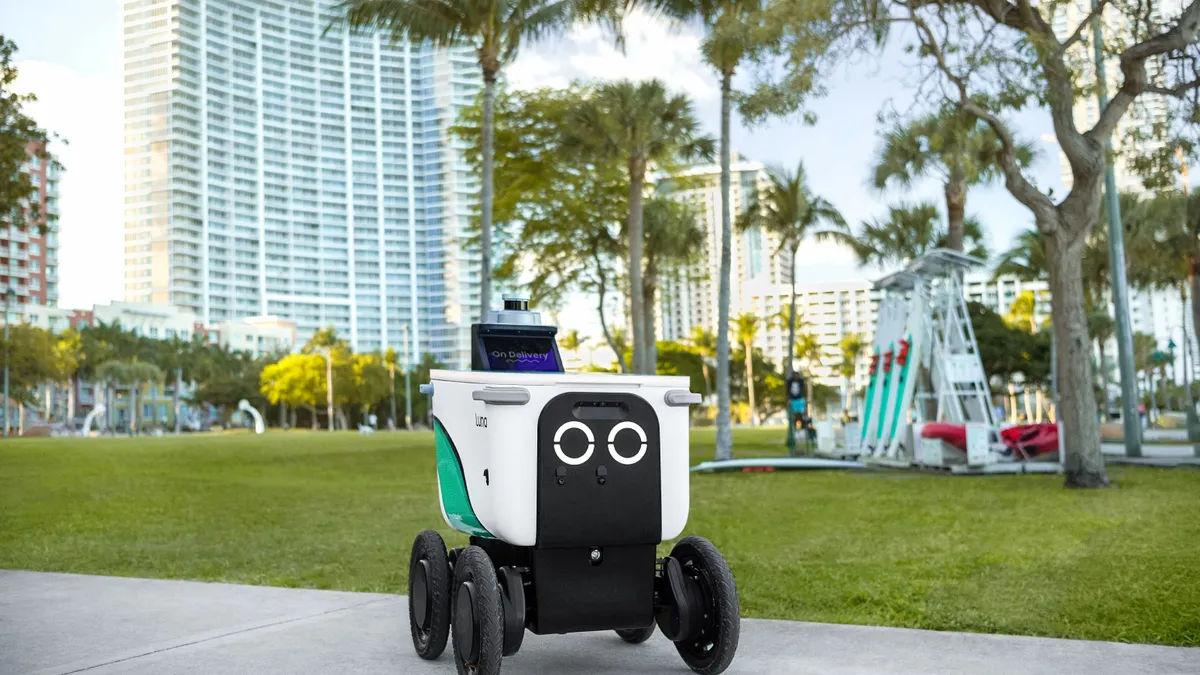When Wonolo, an on-demand staffing platform, planned to open a second headquarters, they looked at about 40 different metro regions. They landed in Nashville, Tennessee, and opened their second office (the first is in San Francisco) last quarter.
So when Amazon announced they were opening an Operations Center of Excellence in downtown Nashville too, co-founder and CEO Yong Kim wasn't all that surprised.
"When we were assessing which market to be in, we had two other competing markets. We could go either way, but when we flew out to Nashville just to get the feel for what the city was like, what the vibe was like, we absolutely fell in love," Kim told Supply Chain Dive.
Of course falling in love wasn't just the only reason that Wonolo decided to open up their second headquarters in Music City — or why Amazon is opening a new facility there.
Location, location, location
In a statement, Amazon said it will be investing more than $230 million in the center, which will have one million square feet of energy-efficient office space and an estimated incremental tax revenue of more than $1 billion over the next 10 years. The center will provide 5,000 full time jobs with an average wage of over $150,000. (Amazon declined to comment for this story.)
"The location is really important," Murat Arik, director of the Middle Tennessee State University Business Economic Research Center, told Supply Chain Dive. "Nashville is at the heart of population centers, and whichever angle you look at, you can reach half of the U.S. population within a single day drive."
It’s also centrally located between "two of the largest logistics providers in the country," said Julie Niederhoff, associate professor of supply chain management at Syracuse University. Memphis, which is about three hours west, has the largest FedEx Express Hub in the world. And Louisville, Kentucky, which is about three hours to the northeast, is home to the UPS Worldport, which UPS said is the largest automated packing handling facility in the world.
Kim said that Nashville being in a central time zone helps too. "It means easy access to both East and West Coast customers," he said.
Amazon will tap into home-grown talent
With jobs in the $150,000 salary range, the Nashville Center of Excellence isn't going to be a warehouse facility, said Niederhoff. Its location in busy downtown Nashville would not lend it to a lot of in-and-out truck traffic.
"This isn't going to be 5,000 people working on packing up people’s Amazon physical orders. It’s going to be more of a managerial, strategic operations," Niederhoff said. "From my understanding, the New York and DC offices are going to be looking at where can we develop new services, acquire new startups, and what’s next. The operations team is ‘how do we make that happen,’" and that will happen in Nashville.
Kim said that Nashville already has a lot of talent in the area — a major reason Wonolo picked the city for its second headquarters. That, and what he feels is Nashville’s "entrepreneurial spirit," adding that the city has recently attracted much venture capital interest.
Nissan North America, Dollar General Corp, Mars Petcare, Tractor Supply and Caterpillar Financial already have corporate headquarters there.
Arik said Nashville is also a spot for up-and-coming talent, with Vanderbilt University right in the city, and his Middle Tennessee State University, which has a supply chain management concentration, less than an hour away. He said Middle Tennessee State University is also working with the Nashville Area Chamber of Commerce to create a pathway for supply chain training high school to college. Plus, community colleges in Tennessee are free.
"Anyone who wants to go for some sort of training, they have two years free tuition," Arik said. "If they follow the opportunities in the market, we have supply chain pathways available in the system."
And attract out-of-town talent too
Nashville has become a pretty nice place to live, too, or at least a lot of people see it that way.
Music City’s population grew 45% from 2000 to 2017. Last year, the Nashville metro area grew by 106 people per day, according to the U.S. Census Bureau. Even though housing values have gone up 75% from 2008 to 2018, according to the Brookings Institution, the National Association of Realtors reports median house price is still relatively low at $262,600.
Compared metro areas like San Francisco-Oakland (median house price: $989,000), Seattle ($502,800), New York ($482,000) and Washington, DC ($426,000), Amazon’s offer of $150,000 in average salary can go a long way in Nashville. Right now, the median household income is just over $62,000.
"From our perspective, still compared to San Francisco and other metro markets that we considered, it’s a lot more affordable and definitely the right direction to have a large player like Amazon coming into Nashville and really invigorating the overall economy and bring up the wage across all markets," said Kim.
"We were really impressed with the caliber of availability of top talent and we’re still seeing that today. We’re constantly interviewing job candidates," he said.




















